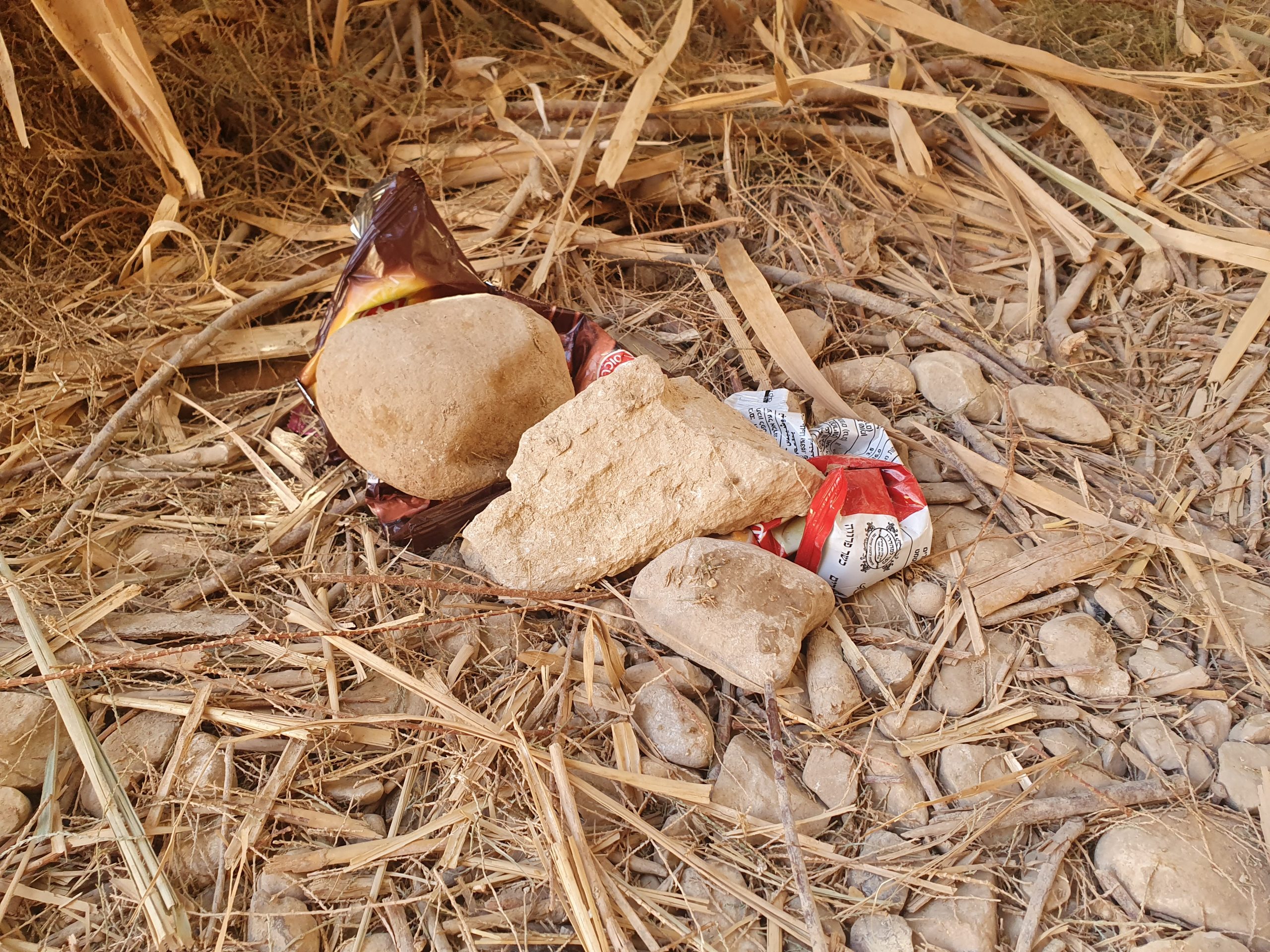Is Israel finally turning its back on single-use plastics?
November 17, 2019Israel is known for its excessive use of disposable plastic products; however, recent developments indicate that a change is underway
According to a report by the Israel Union for Environmental Defense, Israeli citizens spend about NIS 2 billion on single-use plastics every year. In other words, a single Israeli household spends an average of NIS 776 a year on disposable plastic products. The report says that not only is there no significant change in policy and legislation to reduce the use of disposable plastics, but there is even an upward trend in their purchase and use.
A countrywide ban of free disposable shopping bags in supermarkets, enacted in January 2017, cut the sale of plastic bags in half within a couple of months, but did not have any effect on the sale of other disposable plastic products.
Simultaneously, however, rising activism against disposable plastics, especially in the Tel Aviv area, has emerged as part of a new attitude towards single-use plastics.
Parents against plastics
After discovering that her daughter used disposable plastic utensils to eat lunch at kindergarten every day, Galia Rupin decided to write a petition against the use of single-use plastics at preschools and kindergartens in Tel Aviv.
Together with Daphne Yodfat, another mother at the kindergarten, Rupin quickly managed to collect 4,000 signatures for her petition.
Initial objections to single-use plastics by these parents were sparked by the potential health damages their children might suffer as a result of the exposure to plastics that comes into contact with hot food. The main concerns in this regard were the plastic utensils and the packaging in which the food was transported to the lunchrooms. Several chemicals used in the production of plastic food packaging, such as Bisphenol A (BPA), and Phthalates, have been linked to endocrine (hormone) and metabolic disorders, childhood obesity, and decreased fertility. BPA has also been associated with the pathogenesis of hormone-dependent tumors such as breast and prostate cancer.
“According to the directions of the Ministry of Health, when the children are served their lunch at two o’clock in the afternoon, the temperature of the food should be above 65 degrees Celsius to prevent the development of pathogens,” explains Dr. Hagit Ulanovsky, environmental health consultant and co-founder of the Israeli Forum for Sustainable Nutrition.
“In order for that to happen, the food comes out of the factory in the morning at a very high temperature, which can reach up to 100 degrees Celsius .” Subsequently, the food will be transported to the schools and kindergartens, where it sits for several hours until lunchtime.
“The combination of heat, bumpy transportation, and the eventual delay until the food is consumed stimulates the leakage of contaminants from the plastic packaging into the food,” says Ulanovsky.
The parents who are leading the fight against single-use plastics estimate that Israeli kindergartens alone are responsible for the use of about 10 million disposable plastic products each year, which does not include the use of plastics in other schools. This year, a total of 651 kindergartens with 17,812 children were operative only in Tel Aviv.

The parents call was heard
The parents did not just settle for a collection of signatures; they took to the streets and made their voices heard. After a rally with 250 participants outside Tel Aviv’s town hall coupled with a large scale social media campaign, the parents achieved a breakthrough. Shortly after the rally, Tel Aviv’s municipality announced that it would take action against the use of single-use plastics in kindergartens.
To this effect, the education administration in Tel Aviv intends to purchase individual lunch kits with multi-use containers and reusable cutlery that can be washed after each use. The municipality’s plan, which is aimed to come into effect until the end of this year, will apply to first through third-grade children.
In addition, the municipality wants to install dishwashers in every Tel Aviv kindergarten to make it easier for the staff to wash the dirty cutlery.
In the wake of the developments in Tel Aviv, two additional cities in the Tel Aviv Metropolitan Area, Holon and Rishon LeZion, have followed suit and vowed to divest from disposable plastics in educational institutions.
Other cities in Israel such as Hod Hasharon and Kfar Saba, have also recently switched from disposable plastic containers to stainless steel containers to prevent potential toxic substances from seeping into the children’s food.
Grassroots instead of top-down
While parents in Tel Aviv are doing their part to reduce disposable plastics in kindergarten and primary schools, another Tel Aviv resident has come up with an interesting new idea that advocates for the reduction of single-use tableware at home.
The little DIY initiative called Rav Paami, which means reusable or non-disposable, was introduced on Rosh Hashana with a simple Facebook post that reads: “As of today, you no longer have an excuse for using disposable dishes. We are happy to announce the launch of our reusable tableware set for parties, meetings, and events.”
Rav Paami was brought about by Lital Ashkenazi Rodd, a nutritional therapist and expert in Chinese medicine, and her husband, Alon.
Rav Paami offers a simple yet original solution for anyone who is having an event with a large number of people and who wants to avoid using disposables, but does not have enough suitable tableware and cutlery in their own home. All one has to do is to go to the nearest Rav Paami, pick up their tableware set and utensils, wash the dishes after using them, and return them. The entire service is free of charge.
Ashkenazi Rodd’s tableware set, which cost her roughly NIS 950 ($270), contains dozens of plates, saucers, cups, bowls in several sizes, trays, cutlery, and more. ”After buying the kit, I put it on the table, took pictures, and wrote on Facebook that anyone could just come and pick it up, and return everything clean. The day after I published the post, my notebook was already full of orders for the next three months.”
People began to take notice and started adopting the idea in their own neighborhoods. Now, not even two months after the establishment of the project, 16 Rav Paami “branches” are already operating throughout Israel. “I thought that only people from my neighborhood in Tel Aviv would come to ask me for a kit, but I never imagined that within a single month, the idea just would take off like this,” says Ashkenazi Rodd.
“My vision right now is that in every neighborhood in Israel, there will be such a place, and people will make use of it instead of buying throwaways and disposable silverware, she adds.

Less plastic on the beaches
Aside from the potential health risks, the excessive use of disposable plastics also has a significant impact on the environment.
Although the name indicates otherwise, disposable plastics remain in the environment for a long time, becoming degradable only after hundreds of years, if at all. According to the United Nations Environmental Program (UNEP), 12 billion tons of plastic are expected to accumulate in landfills as well as marine and land environments by 2050.
Every year, about 12 million tons of plastic waste reach the oceans, where it pollutes vital marine ecosystems, is ingested by fish, and kills hundred thousands of birds, turtles, and marine mammals. Scientists estimate that by 2050, plastic will outweigh the amount of fish in the oceans.
More than 30 countries have already outright banned single-use plastic bags, while others have imposed stringent taxes in order to counteract this ever-growing crisis. As of 2020, France will be the first nation to have also banned disposable plastic cutlery, plates, and cups. In addition, the EU Parliament has voted to ban single-use cutlery, disposable plastic plates, straws, and more.
Although the Israeli government is trailing behind other nations in their effort to reduce plastic waste production, some municipalities have started to take matters into their own hands.
Earlier this year, two coastal cities have pledged to clean their beaches of all disposable plastic products. Aiming to become the first cities to reduce plastic waste among Israel’s shorelines, the municipalities of Herzliya, just north of Tel Aviv, and Eilat, a city adjacent to the Red Sea in Israel’s south, both have passed new bylaws prohibiting beachgoers from bringing single-use plastics to public beaches. As part of Herzliya’s “City without Plastics” project, which aims to reduce the city’s overall plastic consumption, every municipal building will also start to refrain from using disposable plastics within the next two years.
This ZAVIT article was also published in NoCamels on 11/11/2019.







